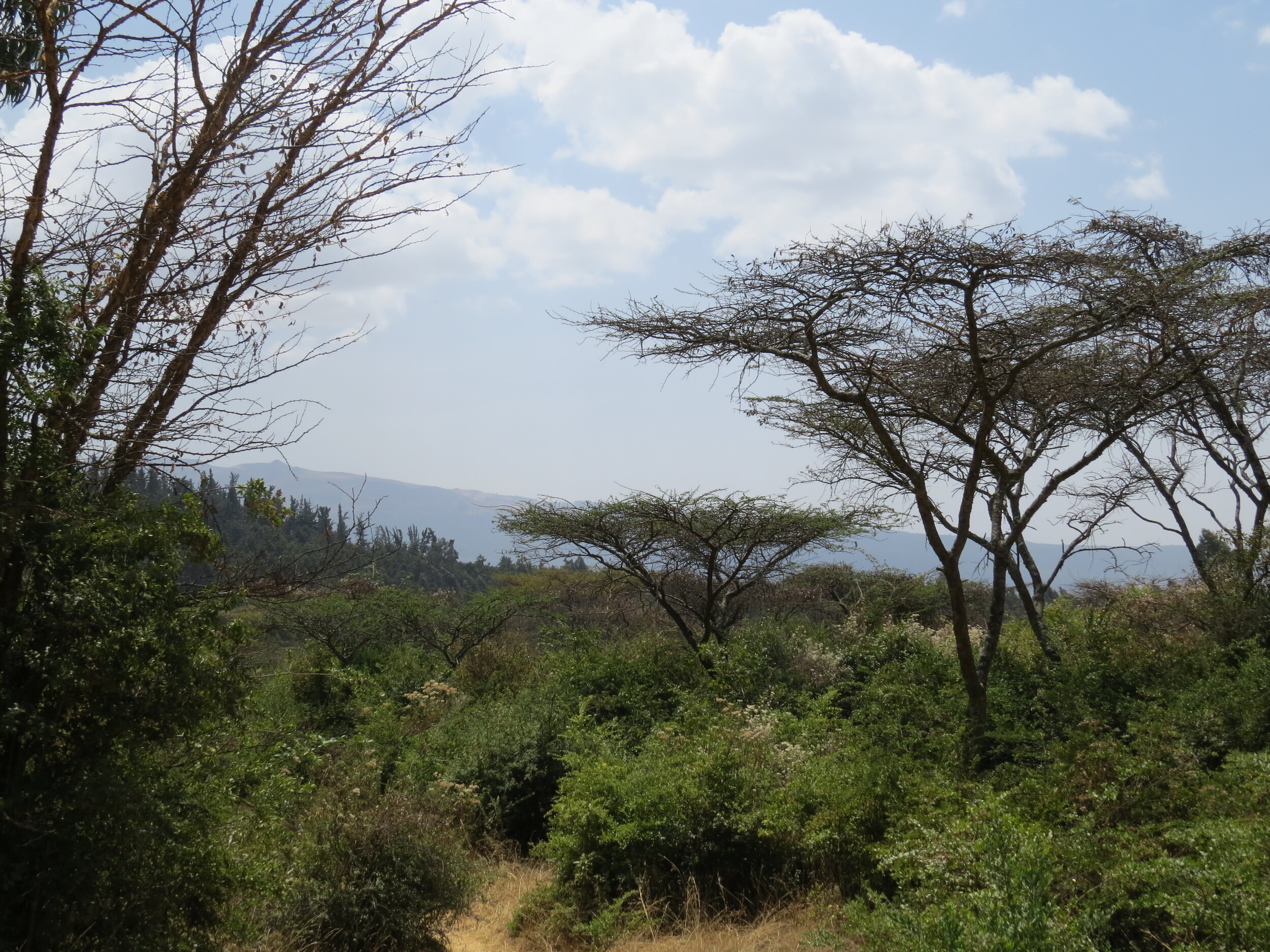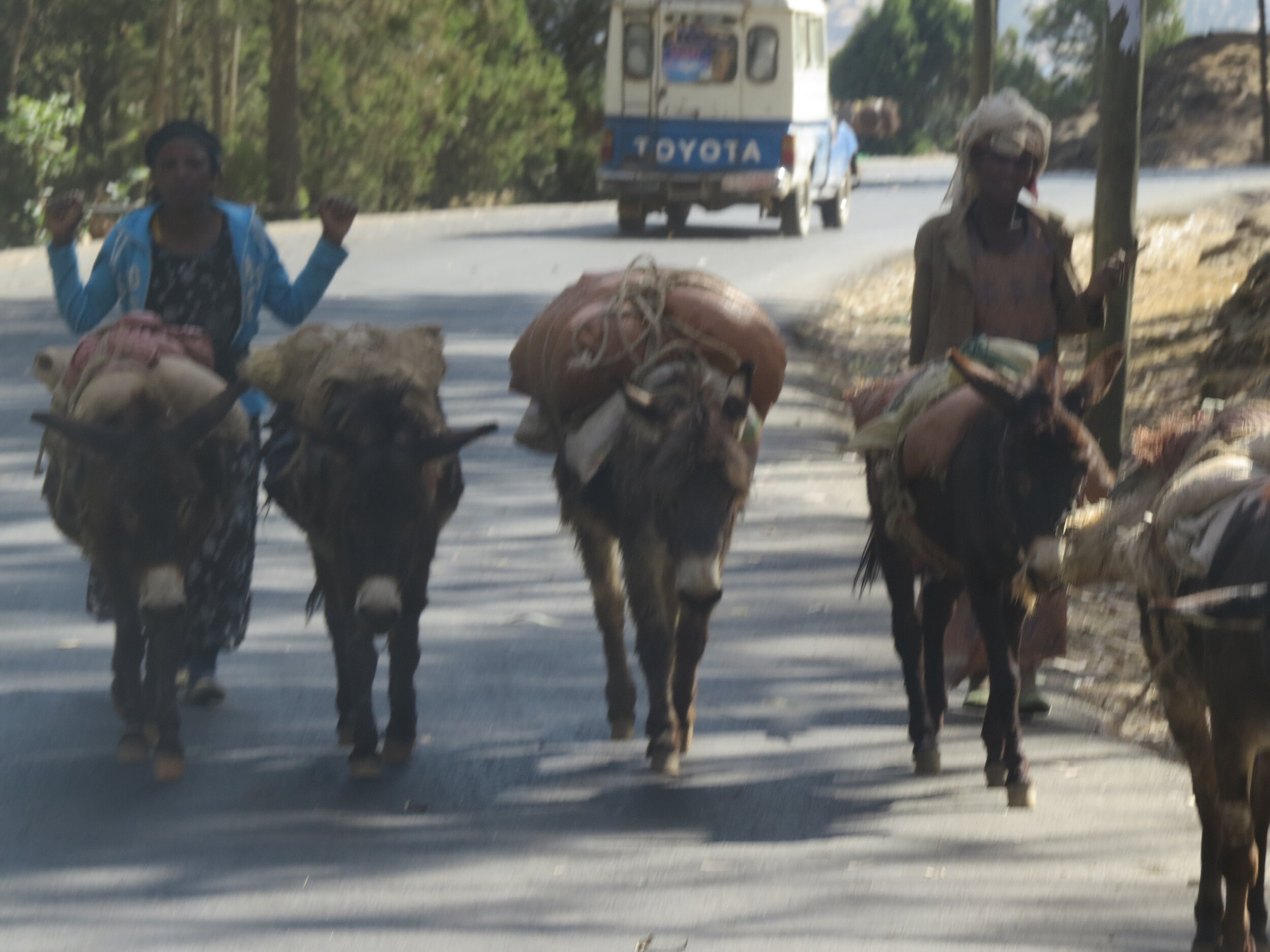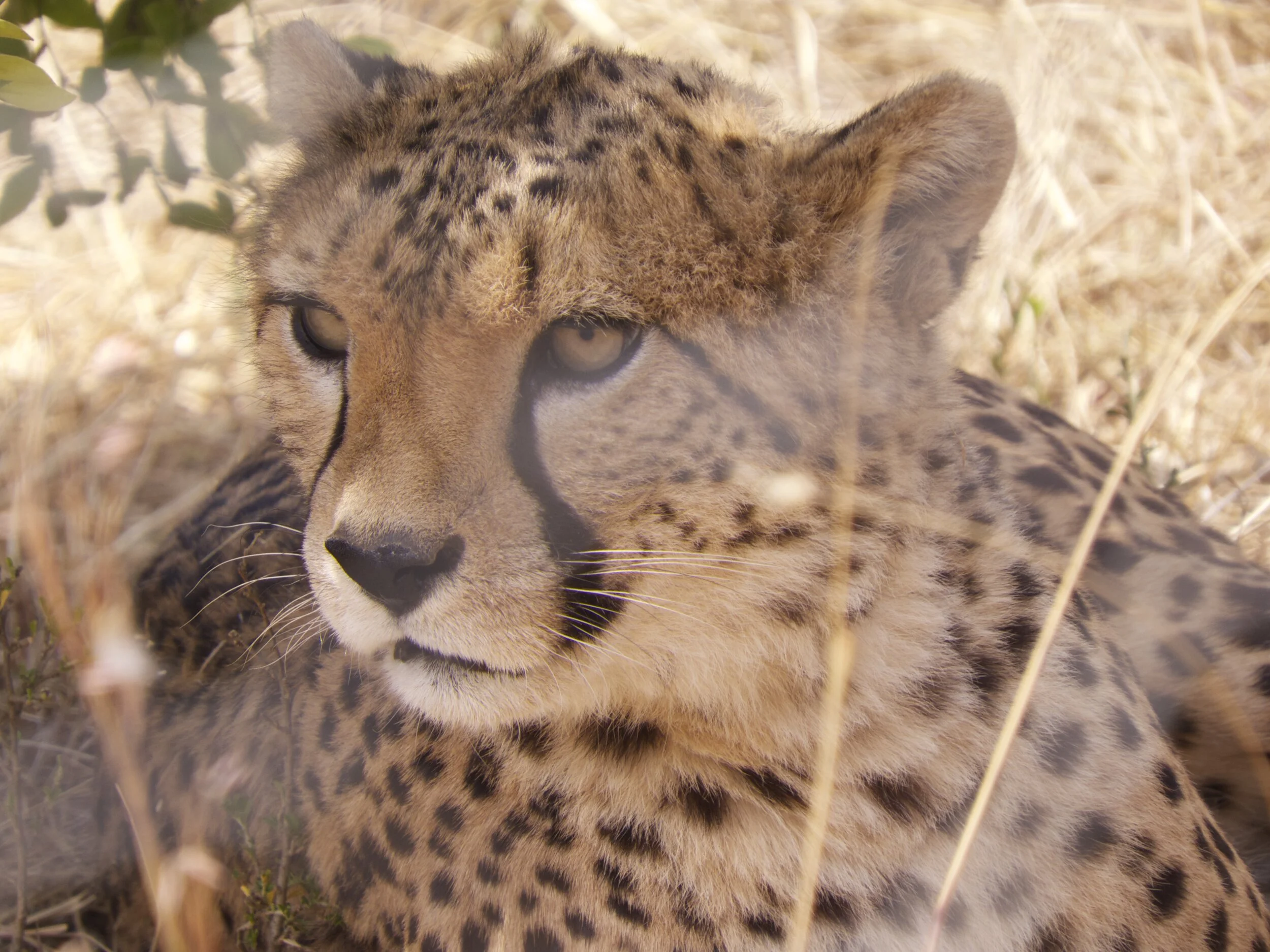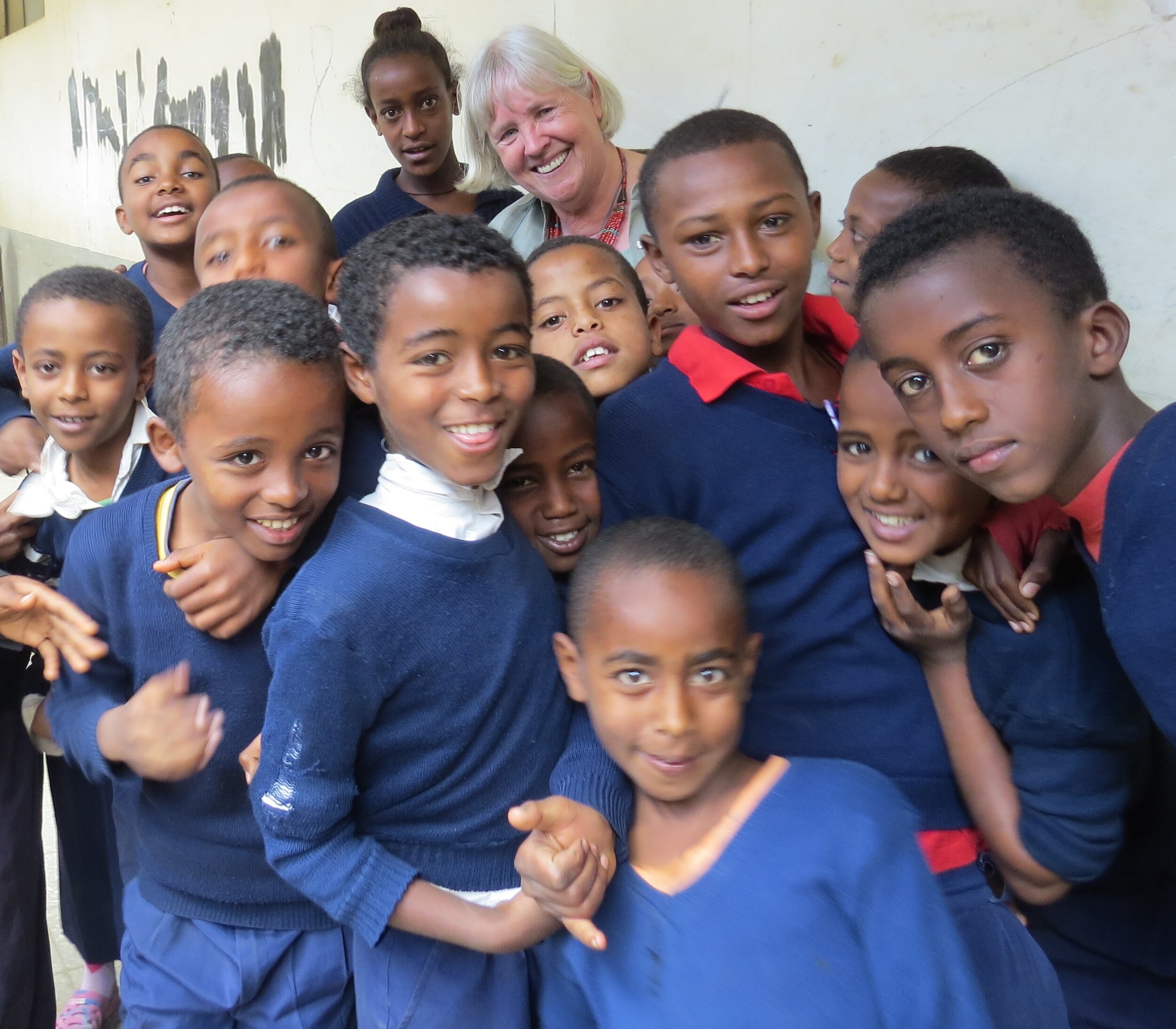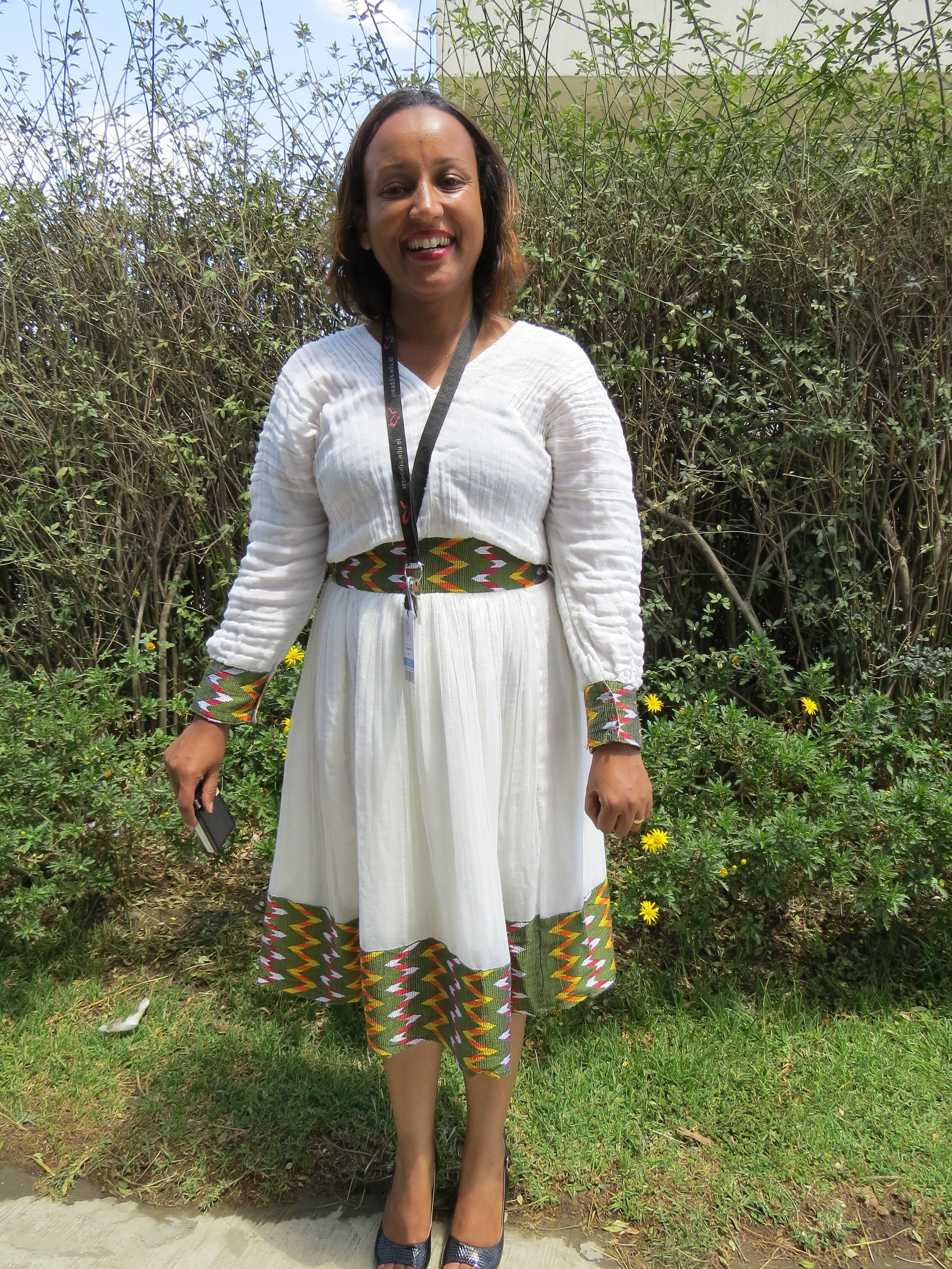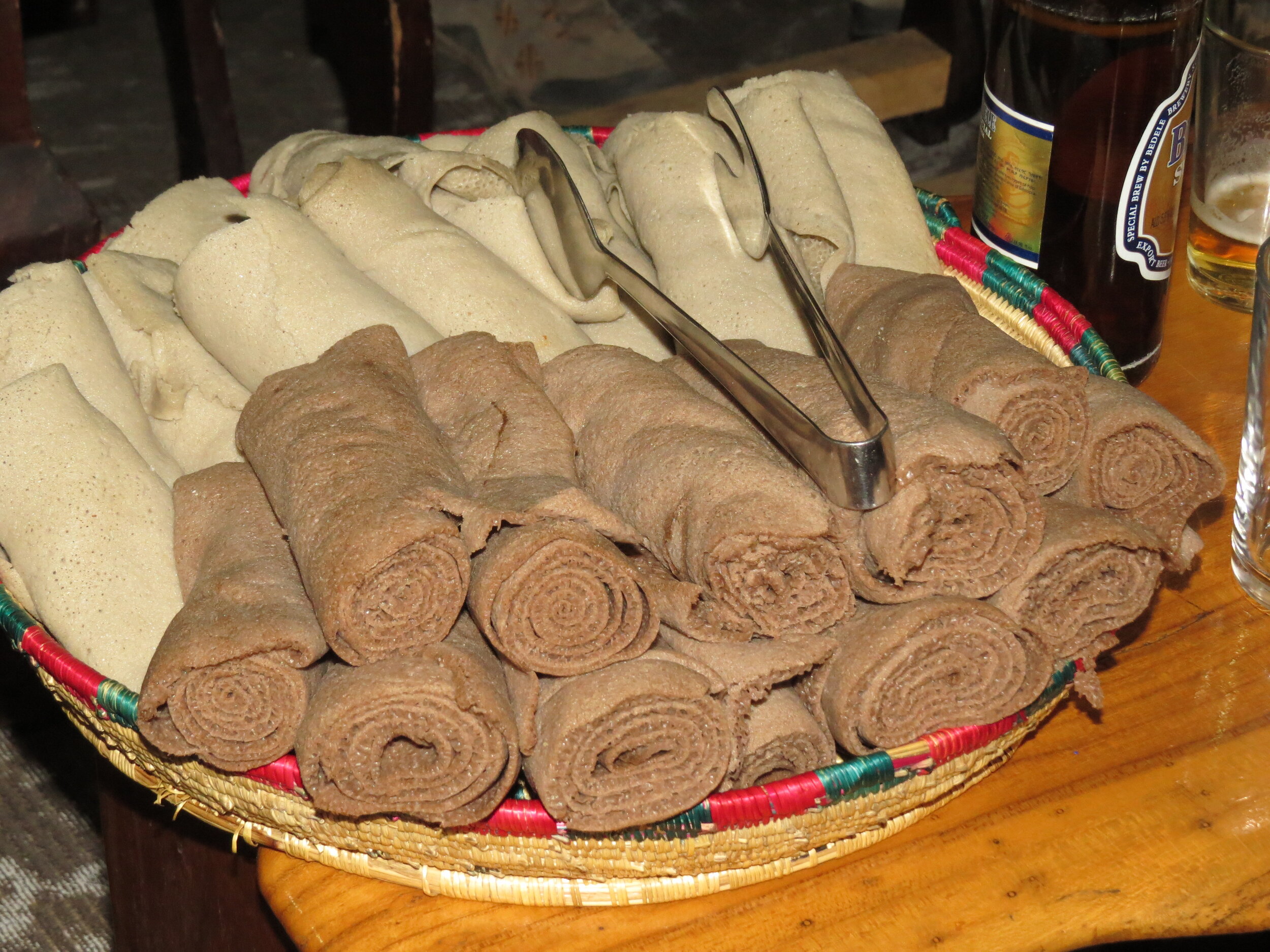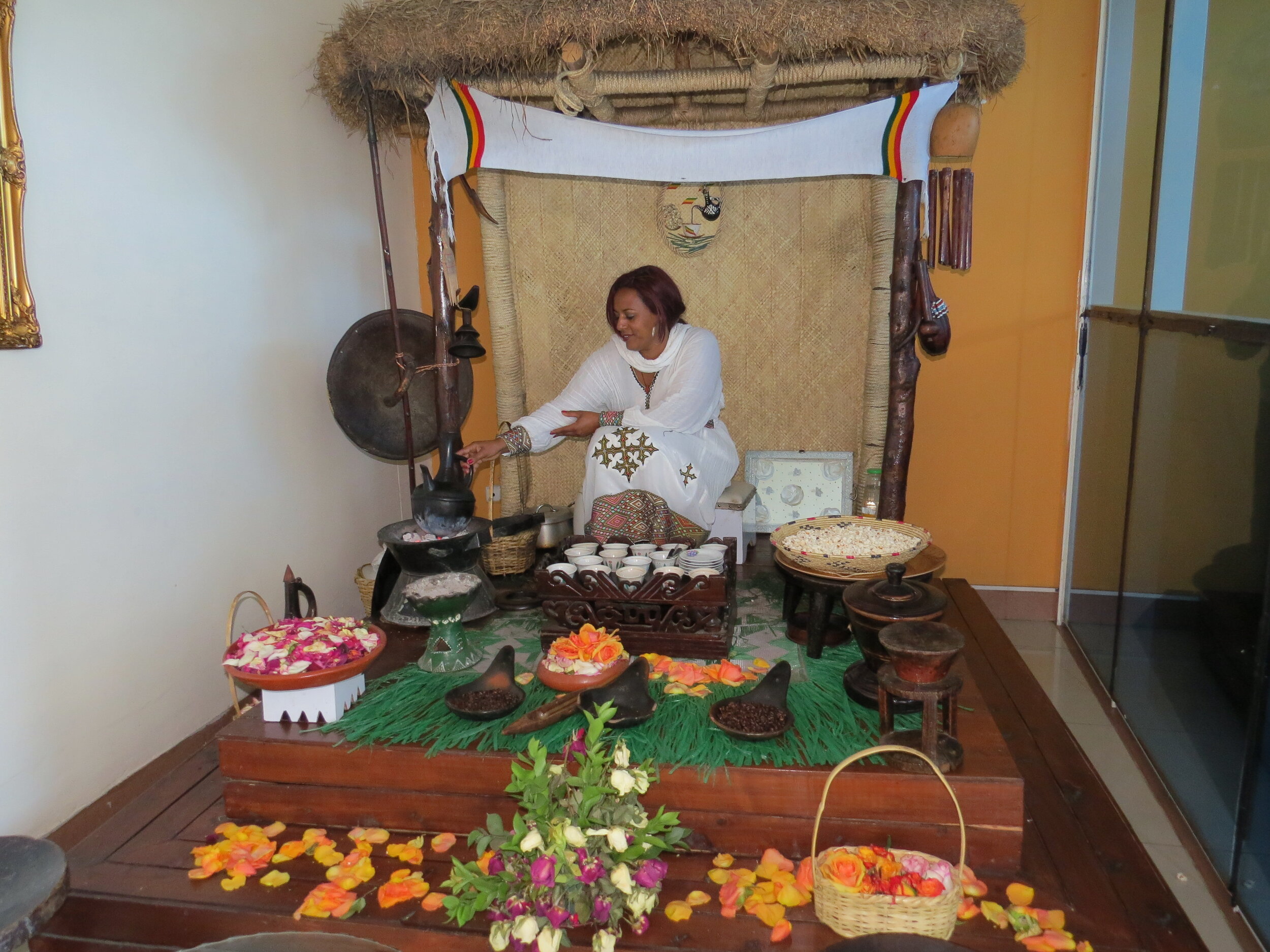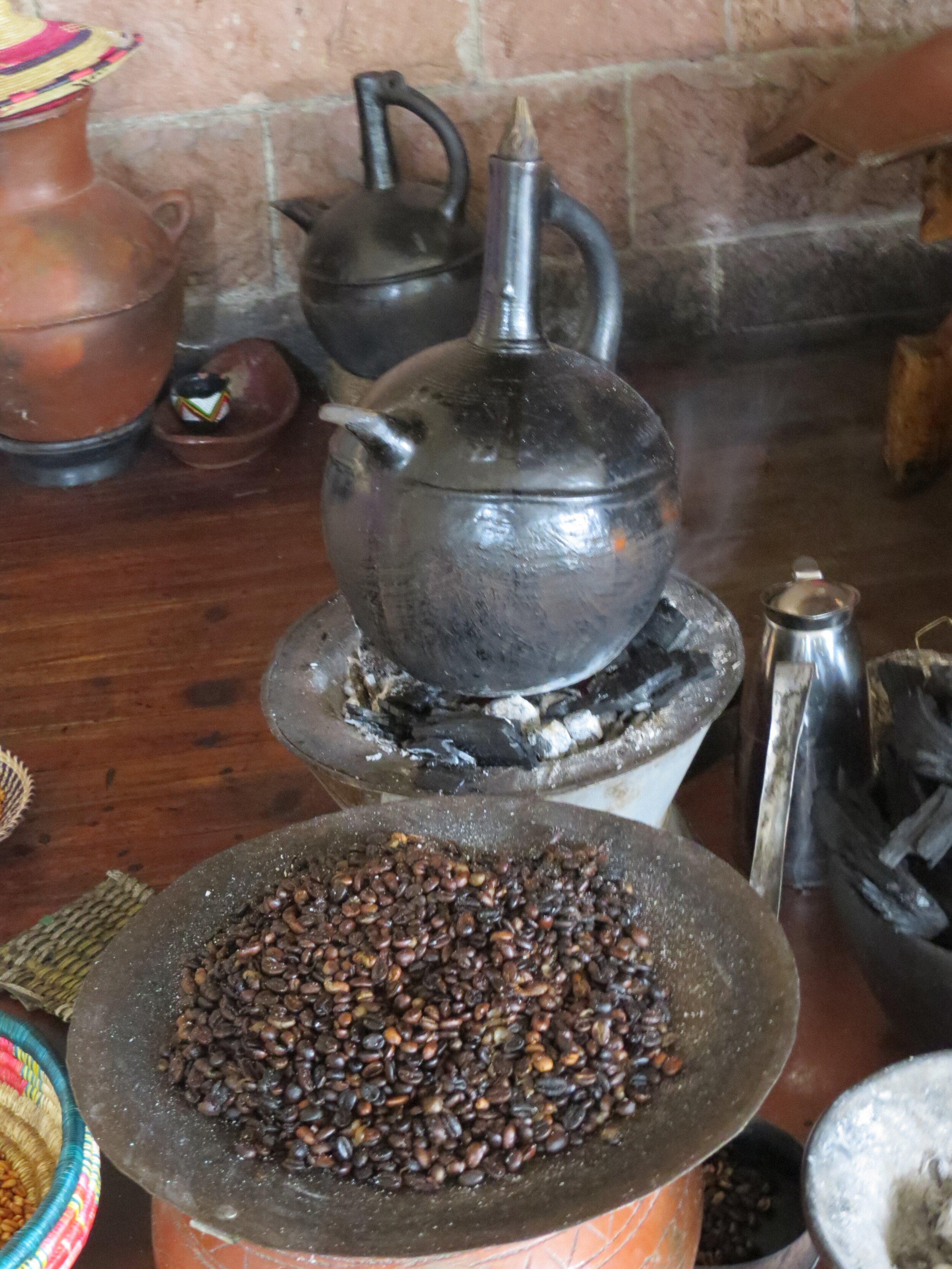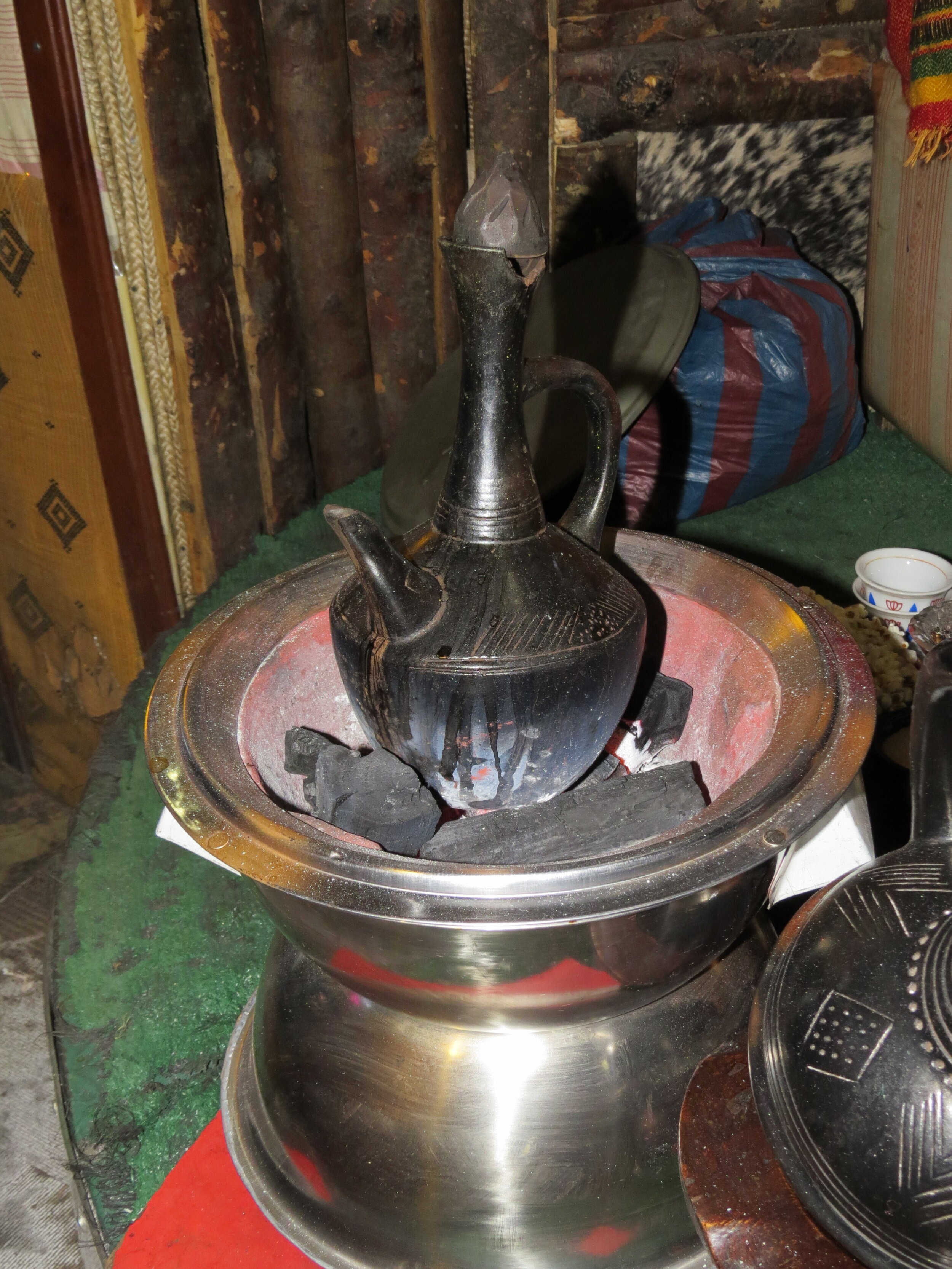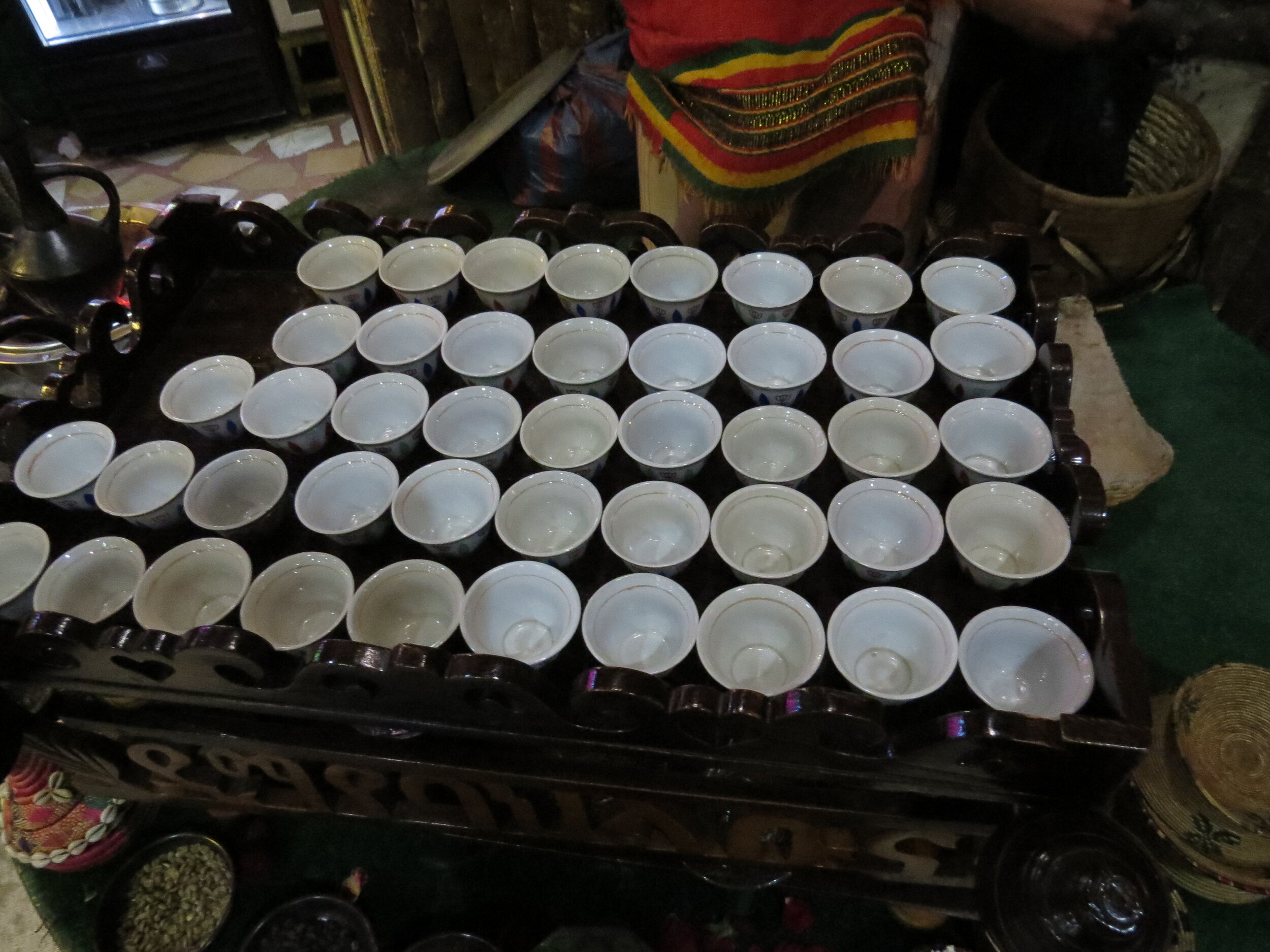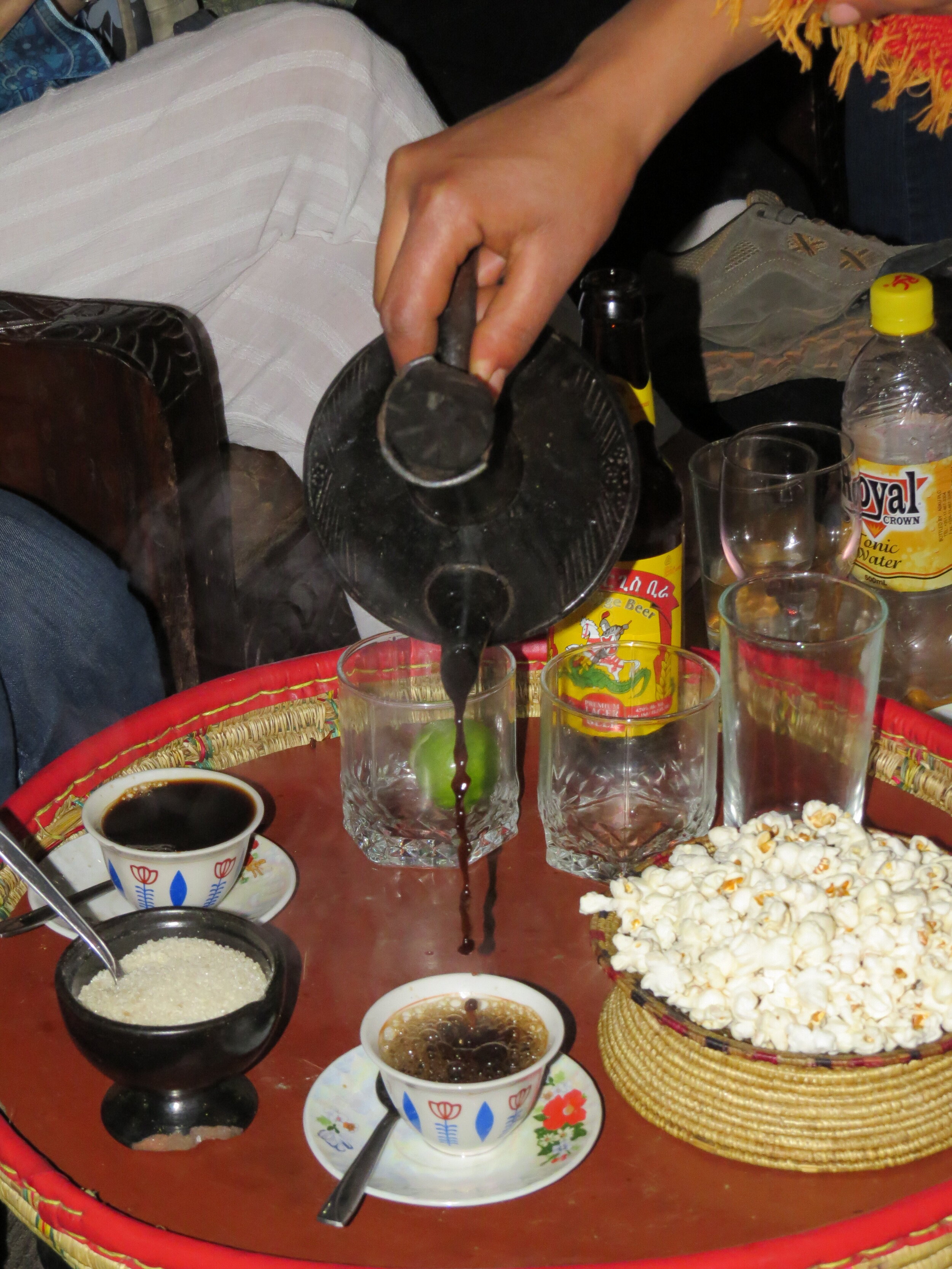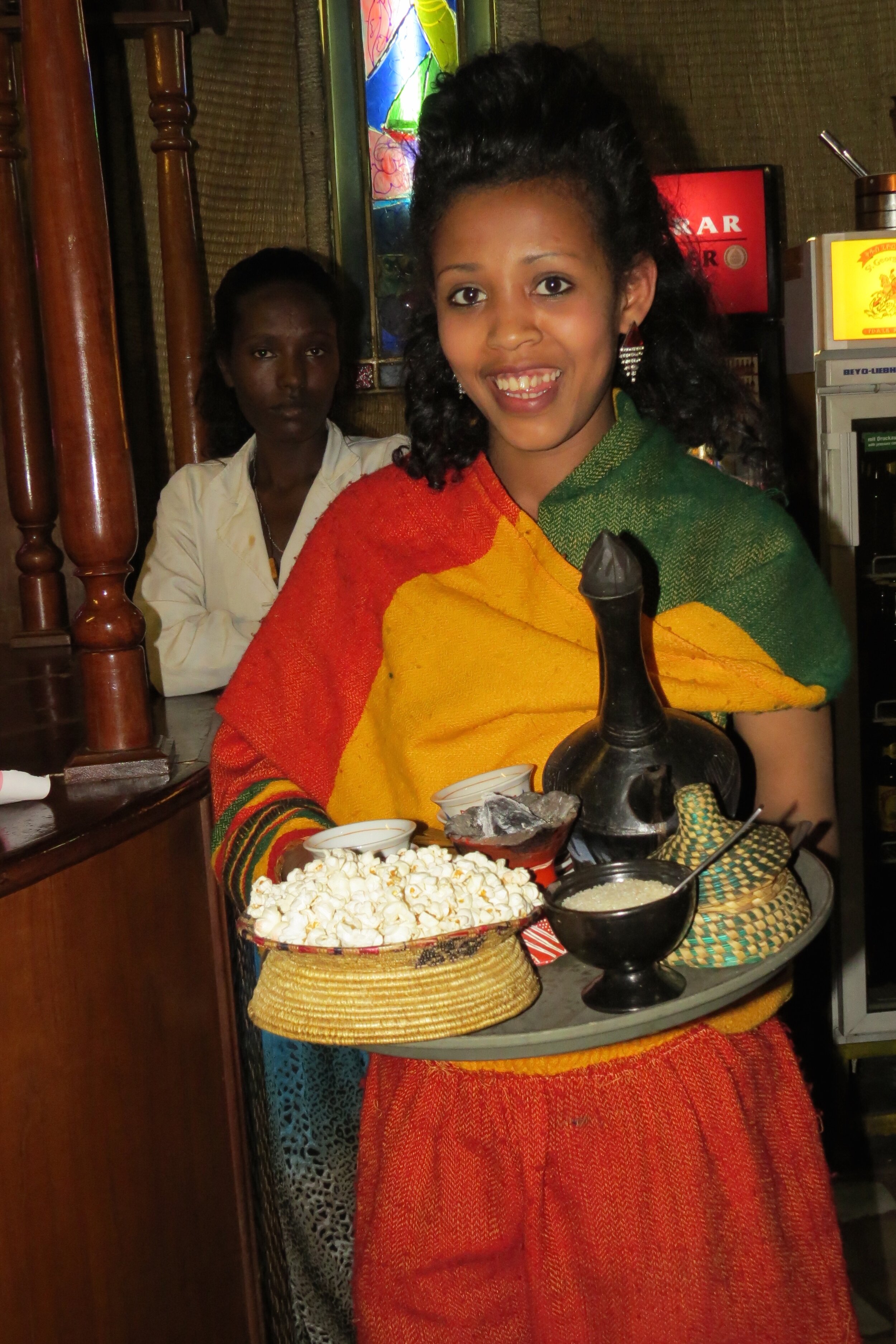Every time I travel to a new place, I am amazed at the things I learn. For instance, did you know that Ethiopia has its very own calendar? And even its own time that is totally different from the rest of the world?
Addis traffic
Our western calendar and our manner of counting days, months and years is the Gregorian calendar. It dates back to Pope Gregory XIII in 1582, and features 12 irregular months. Some of our months have 30 days, others 31 or even 28 and then we have to make up the difference by calling a leap year every four years.
Ethiopia, however, did not change to the Gregorian calendar but stayed with the system that was used before: the Julian calendar. The Julian calendar has 12 months of always 30 days, and then one month of 5 or 6 days. Because of this difference, the years add up differently, too. 2021 is 2013 in Ethiopia. Confused yet? Just wait…
Visit to Born Free Wildlife Foundation
Not only are the days, months and year different, Ethiopians have a different way of keeping time. They use a 12 hour clock with 2 cycles. One cycle starts at 7 AM, or sunrise. That is the first hour. After 12 hours, or at sunset (they are close to the Equator so a day and a night are pretty much 12 hours) they start counting again. So 7 AM is 1 AM and 12 noon is 6, while 6 PM is 12 in local time. Get it? I didn’t…
Visit to a local school.
If you ask for a wake up call, or set a meeting time, you need to emphasize wether you mean Western time or local time.
Add to this a 13 hour flight and an 8 hour time difference with home, and I’m not sure how old I am anymore. Although I was delighted to discover that I am 7 years younger here than at home. I think I shall return to Ethiopia until I'm 21 again…
And then it was time for coffee. I often wonder who the first person was to discover that something is edible… Like, who was the first soul brave enough to taste blueberries and then wait to see if she would keel over dead? And rice… who figured out to collect those tiny seeds and cook them?
The national dress of Ethiopia.
I can see that tropical fruits were easier to figure out. A banana, a coconut I can see how you might figure out to open them and sample the inside. But who was the person to pull the first carrot out of the ground and say ‘Oh, a carrot!’? [BTW did you know that carrots were not orange until some Dutch royal tinkered with it?]
Who first stepped on a walnut and then put the mushy insides in his mouth? And corn - would you figure out how to shuck and cook an ear of corn if you had never, ever seen one?
Injera - Ethiopian ‘bread’ pliable and thin as a towel.
Tea, also, is understandable. I can image a Chinese family, sitting around a fire with a pot of water ready to boil. Some dry tea leaves flutter down from the bushes on a breeze. Some land in the pot and, look, they color the water and… hhmm… it doesn’t taste bad. Maybe even better than plain water. Let’s try that again.
But coffee? It took a whole series of coincidental accidents to figure that one out. Legend (or fact…) has it that a 9th-century Ethiopian goat-herder by the name of Kaldi, noticed the increased energy of his flock. They didn’t want to sleep and happily jumped around the field. He checked the area and found that they had nibbled on the bright red berries of a certain bush. He chewed on the fruit himself and felt a surge of energy and excitement. This prompted him to bring the berries to a monk in a nearby monastery. But the monk disapproved of the berries and threw them into the fire. A most tantalizing aroma arose from the ashes, causing other monks to rush over and investigate. The roasted beans were quickly raked from the embers, ground up, and dissolved in hot water, yielding the world's first cup of coffee! The rest, as they say, is history. I haven’t seen any Starbucks here yet, but a popular coffee chain is called Kaldi, after that original shepherd.
Ethiopia's coffee ceremony is an important part of social and cultural life. When I first spotted the ceremonial area where coffee is brewed, I took it to be a religious altar. And I guess, in a way, drinking coffee in Ethiopia is a bit of a religious experience.
The ceremony is usually conducted by a woman, dressed in the traditional Ethiopian costume of a white dress with coloured woven borders. The long, involved process starts with the ceremonial apparatus being arranged upon a bed of long scented grasses (or plastic artificial grass indoors). The roasting of the coffee beans is done in a flat pan over a tiny charcoal stove. This is how it is done even in the lobby of the small hotel where I’m staying. The strong aroma mixes with that of incense. She washes the coffee beans on the heated pan and stirs it, shaking away the husks. When the coffee beans have turned black, they are ground with a pestle and mortar. The ground coffee is stirred into a black clay coffee pot locally known as ‘jebena'.The lady finally serves the coffee in tiny china cups to those who have waited and watched the procedure for the past half-hour. Pouring a thin stream of coffee into each little cup from a height of one foot without an interruption apparently requires years of practice but will aerate it perfectly. You then drink the coffee with plenty of sugar but no milk. It is also traditional to eat fresh popcorn with your coffee.
In parts of Ethiopia, the coffee ceremony takes place three times a day - in the morning, at noon and evening. It is the main social event in the village and a time to discuss the community, politics and life in general. You must have at least three cups, as the third round is considered to bestow a blessing. And, I must say, its flavour is heavenly and smooth without the acid taste so often found in coffee elsewhere.
I’m told the full ceremony can take three hours, so never complain again if your workers want a 15 minute coffee break!
If you’re interested in more about coffee, here are some links:
http://www.bbc.com/news/business-29541768
http://www.epicurean.com/articles/ethiopian-coffee-ceremony.html
I highly recommend watching this video of the coffee ceremony:
https://www.youtube.com/watch?v=t4zgoR_8UJY
If you want to learn more about Ethiopian time keeping, check out these web sites:
http://www.timeanddate.com/calendar/gregorian-calendar.html
http://www.linkethiopia.org/guide-to-ethiopia/travellers-guide/travel-tips/time/
Click for BOOKS about Ethiopia.

